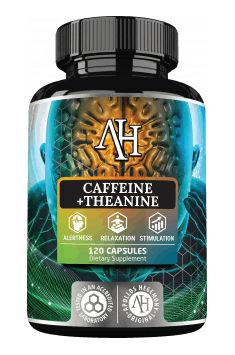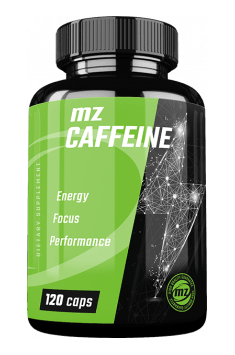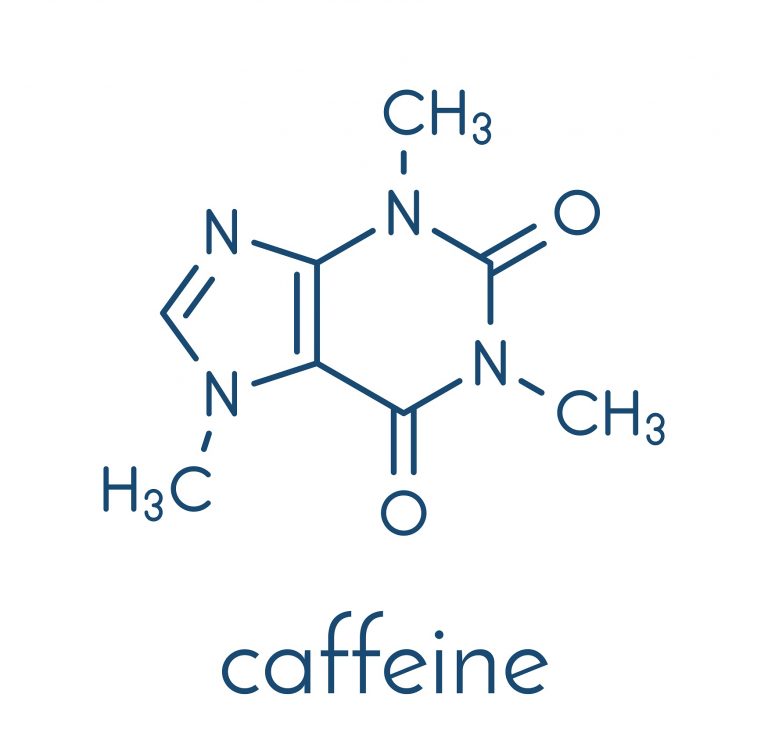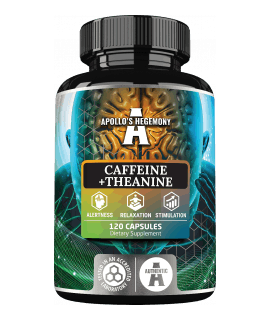In this article, we will discuss five substances most often compared to caffeine. We hope that thanks to this our readers will get full knowledge about the effects of caffeine and the awareness of how it falls in comparison with other substances.
Caffeine as stimulant - overview
At the beginning, however, we would like to ask you to use caffeine in a responsible way. If you are interested in combining it with other substances, make sure that it does not enter into any undesirable interactions. Especially for medicines. Do not exceed the recommended dose of caffeine.
Caffeine vs L-Theanine: the best combination
In the case of caffeine and L-theanine, it is difficult to find a real winner and clearly point it with your finger. Both substances greatly improve concentration and attention, but L-Theanine is considered more relaxing. The caffeine-simulating effect can be considered stronger.

Recent studies have shown that L-Theanine can be as effective as caffeine in improving attention and cognitive function. [1] Most of us are not aware of this, because the dose required to feel the effects of L-theanine is at least 200 mg - about eight cups of tea! However, now that the capsules of pure L-theanine are readily available, it is easier for people to get to know the great advantages of it use!
You can read more about this synergy here.
L-Theanine has almost no side effects. [2] This is an active relationship, met m.i. in tea and is great for improving mood and relaxation. This is definitely something to think about when you consider caffeine and L-Theanine. Our advice: take these two substances together!
Caffeine versus alcohol: completely different effects
The effects of caffeine and alcohol can not be more different! On the one hand, we have alcohol, which is a powerful depressant, lowering feelings from the central nervous system. [3] On the other hand, we have caffeine, which is a very strong stimulant - increasing awareness, energy and focus. [4]
In general, the comparison of caffeine and alcohol means comparing completely different substances with very different effects. Both of these substances are deeply rooted in culture and commonly consumed. However, we can not cheat. Alcohol is harmful for our health as well as for social life. It is a dangerous and highly addictive substance. Coffee, however, pita in moderation, has health-promoting properties and positively affects the relationships between people. [5]
Caffeine versus nicotine: the battle of addiction
Nicotine is an addictive substance found in cigarettes. Nicotine was highlighted as a chemical substance responsible for addiction to cigarettes and tobacco. Considering caffeine and nicotine, it is important to consider the possibility of addiction to both substances. Nicotine releases GABA, dopamine and glutamate - all of which are believed to be responsible for creating the basics of nicotine addiction. [6]

Caffeine is also addictive, but not as much as nicotine. In fact, the debate about whether caffeine is addictive is ongoing. [7] However, some researchers have pointed to something called "caffeine use disorder" - a kind of psychological dependence on caffeine. [8] Furthermore, the fact that users suffer from physical withdrawal symptoms after a long period of use indicates that it is addictive, at least to some extent. [9]
When comparing caffeine and nicotine, one must remember that one of these substances is much more addictive and harmful than the other.
Caffeine versus coffee: extract or raw material?
Caffeine is an active stimulant found in coffee beans and is released when you soak ground ground roasted beans in hot water. Caffeine is by far the most important component of coffee. It is her coffee that owes its magical properties and taste qualities. [10] Comparing caffeine with coffee, you compare the extracted compound with the raw natural product. Of course, the caffeine extract is stronger than the raw material - coffee.
Caffeine extracts are much stronger than coffee. This is a great solution for people who are looking for a powerful dose of energy and increased concentration, but it also means that there are more options for overdosing. Caffeine can be dangerous when used in excess - overdose can cause serious adverse effects, hyperstimulation and even death. [11] Therefore, we urge you to use caffeine extracts in a responsible way.
Caffeine and green tea extract: energy and health
When we compare caffeine with green tea extract, we look at two substances with different effects. On the one hand, caffeine can bring some health benefits, but it is mainly used as a strong stimulant. On the other hand, green tea extract is mainly used as a health supplement with a strong antioxidant and anti-inflammatory effect [12].The best-known advantages of green tea extract include: the ability to destroy free radicals (antioxidant), ability to support the immune system and support in maintaining body weight. [13] So, comparing caffeine with green tea extract, you compare the energizing stimulant with a health supplement. EGCG may have some energizing effect - although this may be due to caffeine, which is often found in green tea extracts.
References:







